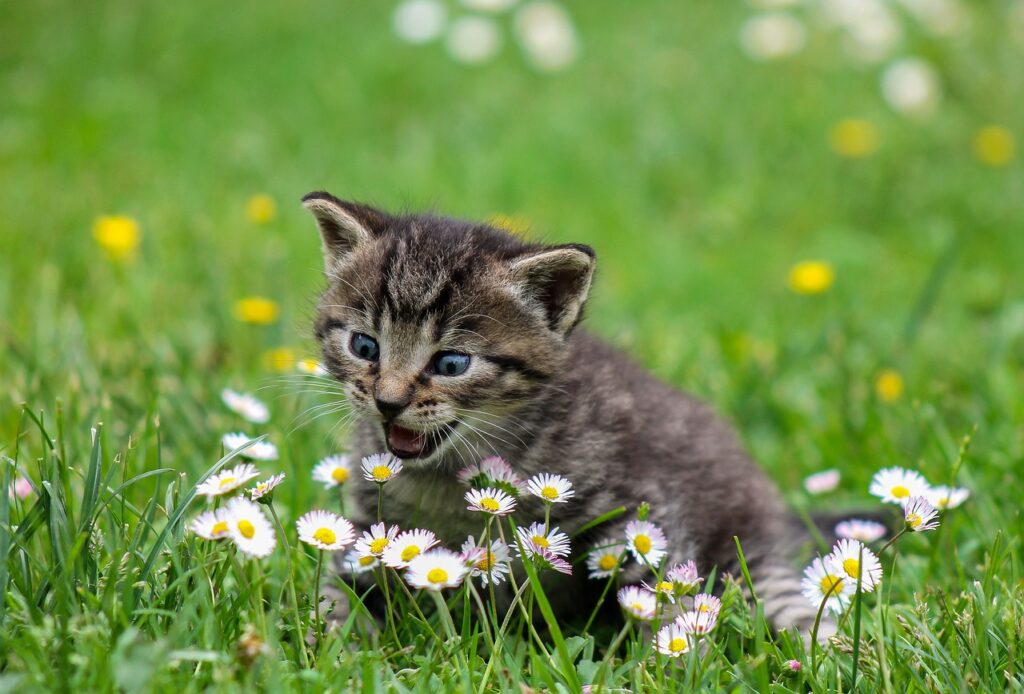Can Cats Eat Smoked Salmon? – No, They can’t
While smoked salmon might seem like a gourmet treat for your feline friend, it is unfortunately not a wise choice for them to indulge in. Smoked salmon is typically prepared with a high salt content which is not suitable for cats. Furthermore, the smoking process can introduce harmful substances that might affect your pet’s health negatively. Cats require a diet that’s high in protein, but they need it in a form that is safe and healthy for them, which smoked salmon cannot guarantee.
Can Kittens Eat Smoked Salmon?
No, kittens should not eat smoked salmon either. The reasons it is unfit for adult cats apply even more so to kittens. Their developing bodies are even more sensitive to the adverse effects of salty and smoked foods. It’s crucial to stick to specifically formulated kitten food that provides the nutritional balance they require to grow and develop properly.
Things to consider when feeding smoked salmon to kittens?
When it comes to feeding kittens in their formative stages, one must ensure their diet promotes their growth and health optimally. Smoked salmon can contain too much salt and potentially hazardous additives that can disrupt a kitten’s nutritional balance and cause detrimental health issues. Instead, you should always opt for high-quality kitten food that is made to meet all their developmental nutritional needs.
Nutritional Benefits of Smoked Salmon for Cats – Why Cats can’t have Smoked Salmon
Unfortunately, there are no significant nutritional benefits to feeding cats smoked salmon, and it is not recommended. The smoked aspect of the salmon introduces unnecessary risks that outweigh the potential benefits of salmon as a fish alone.
Potential Allergies: Can Cats Be Allergic to Smoked Salmon?
While it’s not common, cats can indeed develop allergies to a range of foods, including fish like salmon. Smoked salmon may trigger an allergic reaction or intolerances in some cats. Moreover, repeated exposure to smoked salmon can also lead to sensitivities developing over time.
Symptoms of Smoked Salmon Allergies in Cats
- Itchy skin: Look out for your cat scratching more than usual or developing bald patches.
- Gastrointestinal upset: Vomiting or diarrhea can be signs your cat is not handling the fish well.
- Respiratory distress: Though less common, some cats might exhibit coughing or wheezing.
What to Do If Your Cat Shows Symptoms?
- Immediate cessation: Stop feeding your cat smoked salmon right away.
- Consult a veterinarian: Professional advice is crucial to manage any potential allergy.
- Diet revision: Plan a diet change that excludes any form of smoked fish.
Recommended Amount: How Much Smoked Salmon Can a Cat Consume?
Given the health risks associated with smoked salmon’s high salt content and potential additives, it is not recommended for cats to consume any amount. It’s best to exclude smoked salmon from your pet’s diet entirely for their health and safety.
Things to Consider When Feeding Smoked Salmon to Cats
There are significant risks to consider when feeding smoked salmon to cats, such as high sodium levels, which can lead to serious health issues like sodium ion poisoning. Additionally, the preservation process of smoking can introduce toxic substances that might cause gastrointestinal and respiratory issues. Therefore, it’s highly recommended that cats avoid this food altogether.
How to Feed Smoked Salmon to Cats: A Quick Guide
While we’ve established that smoked salmon is not suitable for cats, if you’re looking for safe ways to incorporate fish into your cat’s diet, it is best to offer plain, cooked, and unsalted fish. This ensures that you’re providing the benefits of fish without the risks of smoked salmon.
Salmon Puree Treat
Blend cooked, unsalted salmon with a bit of water until it forms a smooth paste that can be given as a treat or mixed with their regular food.
Grilled Salmon Flakes
Grill a small piece of fresh salmon without any additives and flake it into tiny pieces that can be added to your cat’s meal.
Salmon and Pumpkin Mash
Cook unsalted salmon and pumpkin separately, then mash them together for a nutritious treat that’s kind for your cat’s digestion.
Conclusion
It’s vital to prioritize the health and dietary needs of your cat when considering their diet. Smoked salmon presents more risks than benefits due to its potentially high salt content and smoking process that can be harmful to your cat. Stick to safer, cat-specific alternatives when incorporating fish into their diet. Always consult with a vet when in doubt about your cat’s dietary needs, and remember: a healthy cat is a happy cat!



